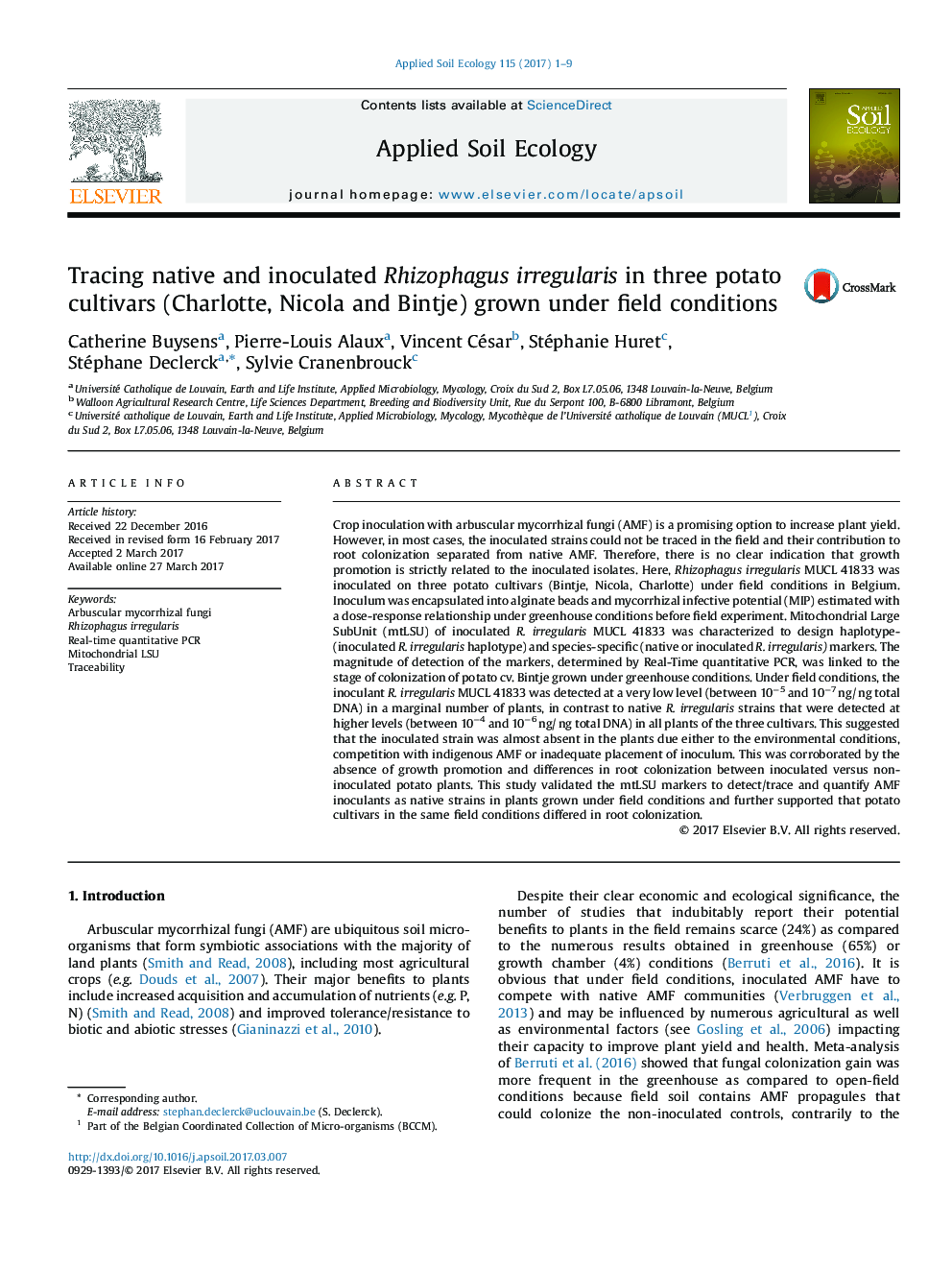| Article ID | Journal | Published Year | Pages | File Type |
|---|---|---|---|---|
| 5742684 | Applied Soil Ecology | 2017 | 9 Pages |
â¢Mitochondrial Large SubUnit (mtLSU) of R. irregularis MUCL 41833 was characterized.â¢Haplotype- and species-specific markers for R. irregularis MUCL 41833 were designed.â¢The magnitude of mtLSU detection was linked to the stage of AMF root colonization.â¢MtLSU markers quantified inoculated and native AMF in roots of potato grown in the field.â¢Potato cultivars in the same field environment differed in root colonization by AMF.
Crop inoculation with arbuscular mycorrhizal fungi (AMF) is a promising option to increase plant yield. However, in most cases, the inoculated strains could not be traced in the field and their contribution to root colonization separated from native AMF. Therefore, there is no clear indication that growth promotion is strictly related to the inoculated isolates. Here, Rhizophagus irregularis MUCL 41833 was inoculated on three potato cultivars (Bintje, Nicola, Charlotte) under field conditions in Belgium. Inoculum was encapsulated into alginate beads and mycorrhizal infective potential (MIP) estimated with a dose-response relationship under greenhouse conditions before field experiment. Mitochondrial Large SubUnit (mtLSU) of inoculated R. irregularis MUCL 41833 was characterized to design haplotype- (inoculated R. irregularis haplotype) and species-specific (native or inoculated R. irregularis) markers. The magnitude of detection of the markers, determined by Real-Time quantitative PCR, was linked to the stage of colonization of potato cv. Bintje grown under greenhouse conditions. Under field conditions, the inoculant R. irregularis MUCL 41833 was detected at a very low level (between 10â5 and 10â7Â ng/Â ng total DNA) in a marginal number of plants, in contrast to native R. irregularis strains that were detected at higher levels (between 10â4 and 10â6Â ng/Â ng total DNA) in all plants of the three cultivars. This suggested that the inoculated strain was almost absent in the plants due either to the environmental conditions, competition with indigenous AMF or inadequate placement of inoculum. This was corroborated by the absence of growth promotion and differences in root colonization between inoculated versus non-inoculated potato plants. This study validated the mtLSU markers to detect/trace and quantify AMF inoculants as native strains in plants grown under field conditions and further supported that potato cultivars in the same field conditions differed in root colonization.
